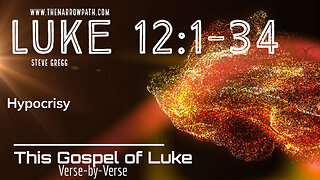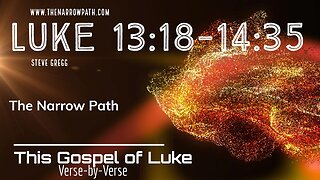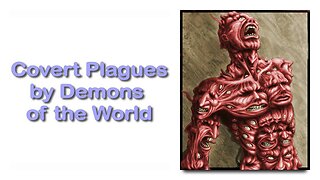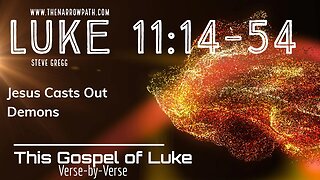Matthew 12:40 and False Teachers
"If a corpse was left for three days and three nights in a house, everything in the house becomes unclean, even the plaster and the stones. Rabbi Yose says: If it was left for three days and three nights in a courtyard, everything in the courtyard becomes unclean." (Mishnah Oholot 17:6)
While the he commentary on this passage explains that "three days and three nights" does not have to mean a literal 72 hours, but rather any part of three consecutive calendar days, you can see that this stretches over the period of 4 days which you can clearly see that 3 periods of light and 3 periods of dark do in fact occur. To my knowledge, which I have done many hours of research looking up and asking this question for 40 years of my life, no one has ANY jewish literature to back up the claim 3 days and 3 nights means anything less than 3 periods of dark and 3 periods of light.
The commentary, in the same Mishnah passage says:
"The expression 'three days and three nights' is not to be taken literally; it means any part of three days. Thus if a corpse was left in a house for one hour on Sunday, all day Monday and Tuesday, and one hour on Wednesday, everything in the house becomes unclean." (Bartenura on Mishnah Oholot 17:6)
-----------------------------------------------------------------------------
More on Daniel 8:14
I searched the Bible for other instances where erev and boqer occur without yom, and I found only one: Genesis 1:5. There, the first day of creation is called "yom echad" (one day), but the phrase "vayehi erev vayehi boqer" (and it was evening and it was morning) precedes it. Some commentators have suggested that this implies that the first day was different from the other days, and that erev and boqer have deeper meanings than just evening and morning[^1^]. However, in all other cases where erev and boqer are used to describe a day, they are followed by yom and a number. For example, Genesis 1:8 says "vayehi erev vayehi boqer yom sheni" (and it was evening and it was morning, the second day). This seems to indicate that erev and boqer are markers of the beginning and end of a day, and that yom specifies which day it is. As for Daniel 8:14, the absence of yom may be due to the fact that erev and boqer are not used literally there, but symbolically. The verse is part of a vision that Daniel had, in which he saw a ram, a goat, and a horn that defiled the sanctuary. An angel explained to him that the vision was about future events, and that the horn represented a wicked king who would persecute the Jews and stop the daily sacrifice. The verse says "And he said unto me, Unto two thousand and three hundred evenings [erev] and mornings [boqer]; then shall the sanctuary be cleansed." Some interpreters have understood this to mean that the period of persecution would last for 2,300 literal days, or about six years.
Others have argued that erev and boqer refer to the evening and morning sacrifices, and that the period of persecution would last for 1,150 days, or about three years. In either case, erev and boqer are not used to denote a normal day, but a unit of time related to the temple service. Therefore, yom is not needed to specify which day it is.
One possible argument that erev and boqer refer to sacrifices and not a day is based on the grammar and context of Daniel 8:14. The phrase “erev boqer” literally means “evening morning”, and it is in the singular form, not the plural. This suggests that it is not counting days, but units of time that consist of one evening and one morning. Moreover, the context of the vision is about the interruption of the daily sacrifice by the horn, which implies that the time period is related to the temple service. Some scholars have also pointed out that the order of erev and boqer is reversed from the usual order of boqer and erev in the creation account, which further indicates a difference in meaning.
The phrase “erev boqer” literally means “evening morning”, and it is in the singular form, not the plural. This means that it is not counting days, but units of time that consist of one evening and one morning. For example, if I say “I ate two apples”, I am using the plural form of apple to indicate that I ate more than one apple. But if I say “I ate one apple”, I am using the singular form of apple to indicate that I ate only one apple. Similarly, if the phrase “erev boqer” was meant to count days, it would have used the plural form of erev and boqer, such as “erevim boqerim”. But since it uses the singular form, it implies that it is counting units of time that are smaller than days.
Moreover, the context of the vision is about the interruption of the daily sacrifice by the horn, which implies that the time period is related to the temple service. The daily sacrifice was a ritual that involved offering a lamb on the altar every morning and every evening in the temple. It was a symbol of God’s continual presence and forgiveness for his people. The horn, which represents a wicked king who persecuted the Jews and defiled the temple, stopped this daily sacrifice and set up an abomination in its place. Therefore, the time period of 2300 erev boqer may be understood as 2300 units of time that correspond to the daily sacrifice, which was offered once in the evening and once in the morning. This would make sense in light of the vision’s focus on the temple and its restoration.
Show me my error if I am wrong.
"rebuke a wise man, and he will LOVE you."
Proverbs 8:
7He who corrects a mocker brings shame on himself;
he who rebukes a wicked man taints himself.
8Do not rebuke a mocker, or he will hate you;
rebuke a wise man, and he will love you.
9Instruct a wise man, and he will be wiser still;
teach a righteous man, and he will increase his learning.
-
 1:11:12
1:11:12
The Narrow Path
1 year agoLuke 12:1-34 Hypocrisy - Steve Gregg Teaches the Gospel of Luke
74 -
 1:06:39
1:06:39
The Narrow Path
1 year agoLuke 13:18-14:35 The Narrow Path - Bible Teaching by Steve Gregg
135 -
 7:59
7:59
Jesus' Revelations thru Jakob Lorber English
1 year agoLegacy of Jesus Christ... He says, do as John did ❤️ Jesus explains John 19:26-27
332 -
 9:32
9:32
Jesus' Revelations thru Jakob Lorber English
1 year agoReturn to your first Humility and Love ❤️ Jesus explains Luke 19:4 thru Jakob Lorber
119 -
 11:20
11:20
Jesus' Revelations thru Jakob Lorber English
1 year agoSloth and Pride... Many of My Disciples left Me annoyed ❤️ Jesus explains John 6:66
112 -
 8:48
8:48
Jesus' Revelations thru Jakob Lorber English
1 year agoPossessed World... Covert Plagues by Demons of Worldliness ❤️ Jesus Christ explains Mark 5:12
148 -
 8:01
8:01
Jesus' Revelations thru Jakob Lorber English
1 year agoThe Divine Power from on High... The Promise of My Father ❤️ Jesus explains Luke 24:49
191 -
 46:21
46:21
BibleLine
1 year ago"Genuine Faith" | Christian Controversies | Sunday School Service
60 -
 2:00:00
2:00:00
HandinHandwithGodTv
1 year ago20 Questions with Pastor Mike (Episode 101)
108 -
 59:22
59:22
The Narrow Path
1 year agoLuke 11:14-54 Jesus Casts Out Demons - Steve Gregg Teaches Through the Bible
195